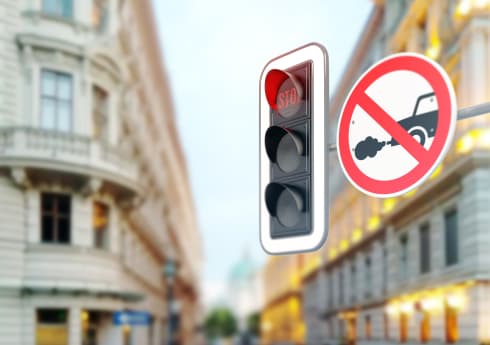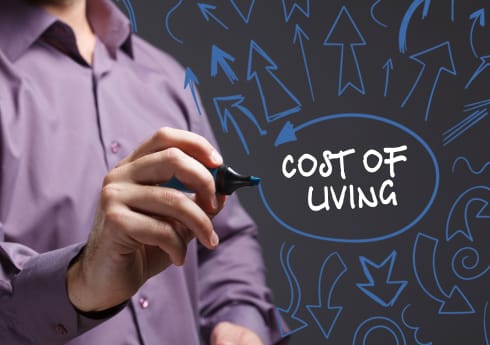Cost of living crisis: Petrol station drive offs
Could the rising costs in the UK be increasing the number of people driving off from the petrol station without paying?
We asked 2,000 drivers in the UK to find out how they’re reacting to the rising cost of fuel. Find out who is more likely to skip paying at the pump and why.

iCompario petrol station drive off study
We conducted a study of UK motorists to discover if the cost of living is impacting their choices at the petrol station. And, if so, why they might be skipping paying.
Our survey contained three questions to reveal reasons why motorists might drive off, demographic data and driver experiences at their location stations.
Who is most likely to skip paying at the pump?
We asked drivers if they were more likely to drive off from a petrol station without paying now compared to before the cost of living crisis. The survey results revealed some interesting differences between age and gender demographics.
Motorists over the age of 65 are the least likely group to drive off from a petrol station without paying, while those aged 18-24 are by far the most likely.
While there are some slight differences between demographics, overall, 1 in 10 motorists are likely to leave a forecourt without paying for their fuel since the cost of living crisis began last year.
Key findings:
- Motorists aged 65+ are the least likely to drive off without paying for their fuel since the cost of living crisis (97%)
- Young motorists, aged between 18-24, are the most likely to drive off without paying for their fuel (30%)
- Men are twice as likely to drive off without paying compared to female motorists (M: 14% / F: 6.4%)
Why are drivers skipping payment at petrol stations?
We asked drivers why they might skip paying at the pump. We asked this question to better understand if the cost of living is impacting driver behaviour and causing petrol station drive-offs.
According to the Consumer Price Inflation report of September 2022 from the Office for National Statistics (ONS), fuel price inflation currently stands at 23.6%¹. That’s a decrease of 17.2% from July when fuel prices dramatically spiked.
But drivers may not be feeling much relief as inflation in food and housing costs tighten the purse strings of UK households.
Key findings:
- Forgetting a purse or wallet came out on top as the main reason why a motorist would leave a forecourt without paying (7.5%)
- Motorists admit they are willing to fill up even if they don’t have enough money to pay (7%)
- More than 1 in 10 motorists who are 18-24 would consider driving off without paying if they needed the toilet
Are we seeing more people drive off without paying?
We asked this question to see what drivers are witnessing every day to see if it matches wider data. The British Oil & Security Syndicate (BOSS) found that forecourt crime is 16% higher in July-September 2022 compared to 2021².
Our survey results reveal that, in the last 12 months, drivers are witnessing cases of petrol station drive offs in the UK.
Key findings:
- Nearly 1 in 10 motorists admit they witnessed someone leaving a forecourt without paying (10%)
- Men witnessed twice as many cases as females whilst at the pump (M: 9.8% / F: 4.7%)
Is driving off from a petrol station without paying a crime?
Yes. Forecourt crime is a crime of any nature undertaken in or around a petrol station. Forecourt crime can include leaving a petrol station without paying for fuel, credit card fraud along with no means of payment fraud.
The Theft Act 1978³ states, “A person who, knowing that payment on the spot for any goods supplied or service done is required or expected from him, dishonestly makes off without having paid as required or expected, and with intent to avoid payment of the amount due, shall be guilty of an offence.”
Petrol station drive-offs have an impact on police resources
The Chief Constable of the Police Service of Northern Ireland (PSNI) states: “The cost-of-living crisis is likely to lead to an increase in crimes such as theft and domestic violence.” Police anticipate an increase in fuel theft, scrap metal theft and shoplifting because of the cost of living.
What happens if you drive off without paying at the pump?
If the cost of living continues to rise, more drivers may consider driving off without paying. But the cost of a petrol station drive-off is much higher than the fuel bill.
If you’re found guilty in a serious case of Making Off Without Payment, you could face two years in prison and an unlimited fine. Sentences for drivers convicted in a Magistrates Court are slightly less at a maximum fine of £5,000 and/or jail time of up to six months.
In serious cases, a person found guilty of Making Off Without Payment could face a maximum of two years in prison and an unlimited fine. Defendants convicted in a Magistrates’ Court can be fined up to £5,000 and/or jailed for up to six months.
What can be done about petrol station drive-offs?
Reducing prices for motorists should help reduce the number of people driving off without paying. 7% of motorists would fill up even if they didn’t have the money, putting serious strain on their bank account and risking legal action.
But there are options available for every driver. Here are some of our top tips to help drivers overcome the rising costs of living.
1. Fuel cards for discount prices and budget control
Business fuel cards are the best way for companies and sole traders to save on fuel costs. You use these cards to pay instead of cash or your debit or credit card. The best discount fuel cards in the UK can offer pump price discounts of up to 10p a litre.
2. Pump brand apps for loyalty points
You may have noticed more drivers at your station using the brand’s app to collect loyalty points. It’s not the most immediate solution but can be useful in the long run for many drivers.
Download your local petrol station’s app on your phone and start getting those points. At many stations, you may be able to use those points on other items in the shop.
3. Prepare for the green energy trend
Electric vehicles. As you often must use a specific card or app to access a charge point, it’s harder to leave without paying to charge an EV. As the cost of electricity continues to rise throughout the winter, EV drivers would be wise to consider accessing a government discount to install a home charge point while they can.
As driving off without paying at the petrol station costs forecourt businesses approximately £10,500 per annum per site⁴, more businesses may consider installing EV charge points to diversify their options.
Follow our tips to help manage your fuel costs. Using fuel cards for businesses and sole traders can help with budget management and discovering discount prices near you.
Sources & methodology
- Survey of 2,000 UK motorists, correct as of October 2022
- ¹Consumer price inflation
- ²https://www.bossuk.org/news/q3-forecourt-crime-index-rises-by-more-than-16/
- ³https://www.motoringresearch.com/advice/petrol-station-drive-off-law/
- ⁴https://bossuk.org/



